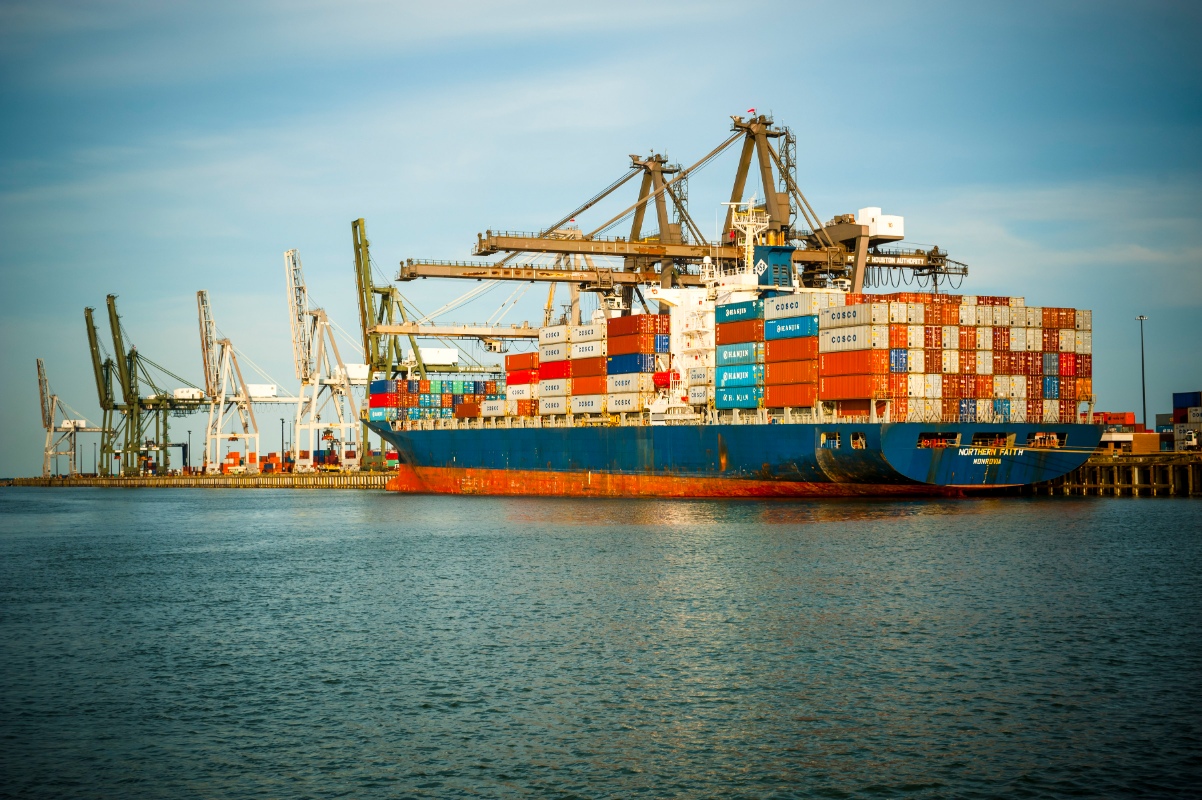Chair of International Investment and Trade Discusses Houston's Position as a Great Global City
Published Jun 02, 2021 by Lou Ann Duvall
As a thriving, global city, Houston’s ties stretch to all corners of the world. The region's geographic location makes it easy to move both goods and people around the world efficiently. From the Port of Houston and the Houston Airport System to a host of multi-national entities doing business around the clock, Houston is positioned well to continue to build a strong, diverse 21st century global economy.
In May, the Greater Houston Partnership celebrated International Business Month with a series of events as well as new data and analysis on the region's trade ties abroad. We sat down with George Y. Gonzalez, Partner at Haynes and Boone and Chair of the Partnership's International Investment and Trade Steering Committee, to discuss how Houston is positioned for continued growth on a global stage.
How is Houston well positioned for continued growth on the global stage?
There are at least two enduring significant advantages in Houston that should serve us both currently and in the future for continued global growth. The first is the energy transition and the second is the growth of logistics, distribution and supply chain advantaged manufacturing businesses arising from our geography.
First, no matter what other cities or regions throughout the world may try to claim, Houston has the largest concentration of engineers, science specialists, capital and companies in every sector of the energy value chain, upstream, midstream, downstream and power, that are each now focused on planning for the energy transition. Already the State of Texas leads the country with respect to aspects of renewables, wind and solar. As the energy transition continues to accelerate and mature, Houston has the ingredients necessary to lead the world in the transition and, concomitantly, generate growth both in employment in the region and also in research and development for the pioneering strategies to provide competitive solutions in the transition.
For instance, my view is that the challenge presented to removing carbon through direct air capture on an efficient basis is, ultimately, a scientific challenge, a science puzzle. We have the engineers, scientists and universities here in our city to address and develop the science required to lead in the energy transition. And what better catalyst for a smart, young person to join us in Houston than the opportunity to help solve the biggest challenges before us: come to Houston to join the leading edge of the climate change solution! Houston has a solution.
Second, we are lucky to have developed as a city where we are in the Gulf Coast. The fact that Houston extended and developed a world-class Port of Houston right up to the 610 loop from the Gulf is an example of the historic creative thinking and practical solution-oriented game-changing projects initiated by our business leadership. This is a serious business legacy that is apparent everywhere we look in the city, from the Port of Houston, the Texas Medical Center, NASA, all of the performing arts, the Museum District, the development and contributions to the city generally of places like Sugar Land, the Woodlands, Katy and other vibrant places where people live, work and play.
The geography of our city, though, is important for its natural contribution to adding to the energy transition business leadership in the region a significant and expanding business growth opportunity in logistics, distribution and supply chain advantaged manufacturing utilizing all of the advantages of our geography. Increasingly, excellence in business operations will be apparent in native Houston companies. Houston has been and can continue to develop as a Hub of the Americas, a natural business headquarter location for companies seeking to develop a presence in the United States and the rest of the Americas. We lead North America, for instance, with respect to the social, economic, business and working relationships with Mexico.
Both of these growth areas are now being cultivated by a focus on the development of our formal technology sectors as represented by the development of the Houston innovation corridor and The Ion near Rice University. Among the lessons derived from the COVID-19 pandemic is the critical nature of technology solutions to opportunities to continue and extend work. Two recent examples of successes in this area are Hewlett Packard Enterprise (HPE) and NRG, both of which recently announced their formal headquarters move to Houston.
How do you feel trade deals like United States-Mexico-Canada Agreement (USMCA) will affect the region?
The USMCA, and NAFTA before it, are critical tools in the development of the second source of continued business growth in our region: the expansion of logistics, distribution and supply chain advantaged manufacturing businesses arising from our geography. As indicated above, Houston leads North America with respect to the social, economic, business and working relationships connected to Mexico. Additionally, just considering the many Canadian-origin broad based energy companies with significant operations in Houston, our city is positioned more effectively than any other to maximize the intended benefits of a free trade arrangement among the U.S., Canada and Mexico, like the USMCA.
Trade arrangements like the USMCA are about expanding opportunities for people, labor, businesses, companies and capital among the member countries. Trade should be a growth or an expanding pie opportunity for its constituents. For instance, one interesting area for potential growth centered out of Houston is the development of significant value added manufacturing with Mexico in specific growth sectors that are not currently significant in Houston, like the manufacturing of electric cars.
Do you feel North American supply chains are shifting and if so what does the future hold in store for Houston?
The COVID-19 pandemic has changed and accelerated trends in many different personal and business sectors. One potentially important business effect of the pandemic is the acute impact it has had on global supply chains. Recently, I co-authored an article on this topic in Global Trade Magazine, The article, “Out of Asia: Promise from Pandemic of a Manufacturing Renaissance in North America” examines the COVID-19 pandemic’s strains on the nation’s supply chain, highlighted our overreliance on Chinese manufacturing and outlines how we can reshore manufacturing in North America through domestic policy and government support.
A natural location for any manufacturing reshoring is the Gulf Coast of the United States, and specifically the Houston region. Houston has an important opportunity to leverage the natural advantages of our geography, our engineering expertise and workforce, our diversity, our trade and connectivity advantages with Mexico, and our business-friendly approach to center the North American manufacturing renaissance out of our region.
What will the post pandemic recovery look like, and how can the region better position itself for continue prosperity?
The United States economy has been expanding over 6 percent GDP growth pace through the first part of 2021 and most economists expect this growth level to continue for the rest of the year and into 2022. So growth will be part of the Houston story as we work through the mechanics of the general workforce returning to the office. My hope would be that our business and political leadership, both in Houston and Texas generally, use this period of economic expansion to further develop our two natural areas of enduring advantage in the energy transition and the logistics, distribution and supply chain sectors, together with an extension of our technology and innovation venture capital community. We must also work in this growth period to address and develop the important infrastructure needs of our region, from transit expansion to the development of the important coastal barriers to protect the Port of Houston ship channel.
Growth periods present singular opportunities for leadership to have a magnified effect. Now is the time for our business and political leadership to doubly invest in our future business growth sectors and secure the important infrastructure solutions that will in combination ensure a prosperous and dynamic future Houston. If, as Rice University Professor Kleinberg says, Houston today is what the United States will eventually become, the future Houston will most certainly lead the nation and the world.
To learn more about Houston’s international business climate, click here. Also read the Partnership's recent Global Houston reports analyzing our trade ties and the trajectory of international business.
 The Houston Report
The Houston Report




















